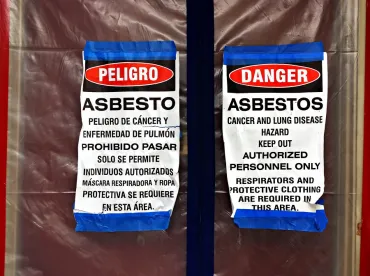In 2011, The Fair Share Act, 42 Pa. C.S.A. § 7402, became law. The Fair Share Act changed the law of joint and several liability for actions sounding in negligence, eliminating joint and several liability except under certain exceptions. Under the Act, “a defendant’s liability shall be several and not joint, and the court shall enter a separate and several judgment in favor of the plaintiff and against each defendant for the apportioned amount of that defendant’s liability.” 42 Pa. C.S. § 7102(a.1). Each defendant is liable for its own proportion of the total dollar amount awarded as damages. Id. The Fair Share Act, which in some cases may prevent a defendant from obtaining a full recovery, was intended to prevent lawsuits targeting deep-pocket defendants. As Governor Corbett said at the time, “Tort reform legislation ensures that a party’s level of financial responsibility is assessed in a fair and equitable manner, rather than based on its financial assets.”
This week, in Roverano v. John Crane, the Pennsylvania Supreme Court addressed whether the Fair Share Act required apportionment of liability in strict liability cases. In 2014, William Roverano brought a strict liability lawsuit against multiple defendants, claiming that exposure to their asbestos-containing products caused his lung cancer. The trial court ruled that, because asbestos exposure from individual products could not be quantified, it would apportion liability on a per capita basis. Following a jury award of over $5 million, the trial court apportioned the judgment equally among the defendants.
On appeal, the Superior Court held that the Fair Share Act applies to strict liability asbestos cases. As such, the court remanded the case for a new trial on damages, with instructions for the jury to apportion liability to each defendant on a percentage basis rather than on a per capita basis. Roverano filed a petition for allowance of appeal, which the Supreme Court granted, to consider whether the Fair Share Act requires the jury to apportion liability on a percentage basis in strict liability cases.
The Supreme Court reversed, holding that the Fair Share Act’s “plain language is consistent with per capita apportionment in asbestos cases, the Act does not specifically preempt Pennsylvania common law favoring per capita apportionment, and percentage apportionment in asbestos cases is impossible of execution.” The Supreme Court explained that, because strict liability is “’liability without fault,’ and each defendant is ‘wholly liable’ for the harm, … ‘it is improper to introduce concepts of fault in the damage-apportionment process.” Because the Fair Share Act does not explicitly preempt that common law holding—and because the Superior Court’s interpretation would be “impossible of execution” in strict liability asbestos cases—the Supreme Court reversed the Superior Court.
You can read the Supreme Court’s opinion here.



 />i
/>i

